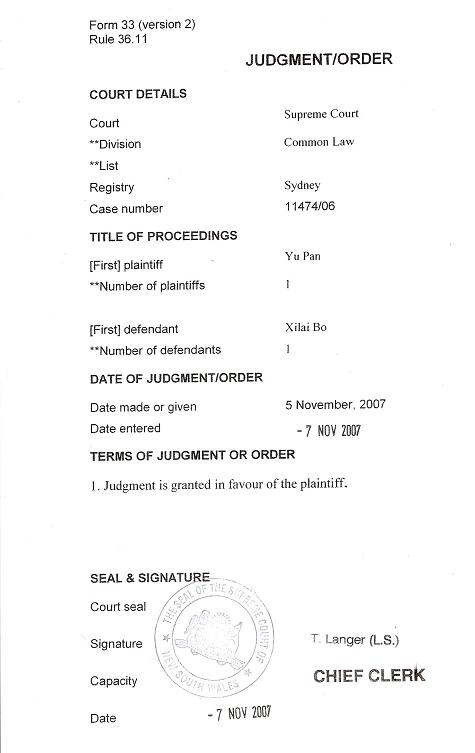Mood:
Topic: legal
Client Legal Privilege
As issues of national security continue to dominate the political arena, preserving the rule of law is becoming increasingly challenging as executive government seeks to increase access to various sources of information. Of particular concern is the current discussion with regard to expanding the range of powers given to investigative bodies allowing them to probe into all aspects of lawyer-client relations.
The Law Society maintains that full and frank exchange between lawyers and their clients is fundamental to ensuring the appropriate carriage of justice. Legal privilege is the client’s privilege and citizens’ rights must be protected against expedient, fear-based, legislative incursions.
It is important that laws are reviewed in a manner that does not lead to an erosion of confidentiality and privilege. The Law Society will co-operate with relevant bodies to maintain an ethical and independent legal profession and provide strong protection for the exchange of confidential information between lawyers and their clients.
The Society’s submissions on the Australian Law Reform Commission’s Discussion paper on Client Legal Privilege and Federal Investigative bodies are available on the Law Society’s website at www.lawsociety.com.au/15434. Similarly the Law Council of Australia submission can be accessed at the Law Council’s website. The Society’s recently formed Ethics sub committee on The Rule of Law will also be looking at issues of confidentiality as part of its brief. You’ll find more about this sub committee in the December issue of the Law Society Journal.
....
Hugh Macken
Senior Vice President
...........................................
Also of interest is this initiative of the Law Society to enforce ongoing ethics training for solicitors at least once every three years:[PDF file] LEGAL PROFESSION ACT 2004 PROPOSED AMENDMENT TO SOLICITORS RULES: RULE 42
The Council of the Law Society of NSW proposes to amend Rule 42 of the Revised Professional Conduct and Practice Rules by the insertion of a new 42.1A requiring a practitioner to complete, as part of the Mandatory Continuing Legal Education (MCLE) requirement, one (1) unit of ethics education every three (3) years. The Council also proposes to make various other amendments to the Rule including .... The current rule is set out at: www.lawsociety.com.au/page.asp?partID=722
The Law Society invites comments and submissions on the proposed rule. These should be forwarded to the Secretary, Law Society, 170 Phillip Street, Sydney, NSW, 2000 or emailed to ethics@lawsocnsw.asn.au by 30 November 2007
.[proposed new ethics training rule]
42.1A If the holder of a practising certificate is required to undertake a course of continuing legal education, that continuing legal education must include a component relating to legal ethics that deals predominantly with the role and responsibilities of legal practitioners where:
42.1A.1 the component is to be undertaken at least once in every compliance period, or such shorter period as may be determined by the appropriate Council, and is to comprise at least one unit in the units of continuing legal education that the holder of the practising certificate is required to undertake.
42.1A.2 "compliance period" means:
(a) in relation to a person who was the holder of a local practising certificate at 1 April 2008:
(i) the period starting on 1 April 2008 and ending on 31 March 2011, and
(ii) each further period of 3 years ending on the third anniversary of the expiration of the previous period, or
(b) in relation to a person who became or becomes the holder of a local practising certificate after 1 April 2008:
(i) the period starting on the next 1 April after the person became or becomes the holder of a local practising certificate and ending on 31 March in the year that is 3 years after the start of this period, and
(ii) each further period of 3 years ending on the third anniversary of the expiration of the previous period.












